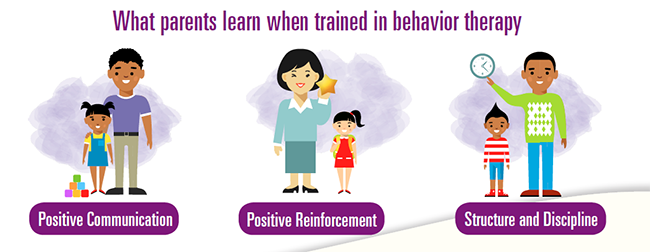The Advantages of Customized ADHD Therapy Strategies for Better Outcomes
The application of personalized ADHD treatment plans has emerged as a crucial strategy in enhancing healing results for people affected by this problem (ADHD treatment). By acknowledging the distinct indications of ADHD in each person, these customized interventions promote greater interaction and motivation, inevitably leading to a lot more efficient coping techniques.
Recognizing ADHD Irregularity
Although Attention-Deficit/Hyperactivity Problem (ADHD) is typically regarded as a particular problem, its indications can vary dramatically amongst individuals. This variability is influenced by a variety of variables, consisting of age, sex, coexisting conditions, and ecological contexts. As an example, children with ADHD may show hyper actions, while adults might predominantly deal with attention shortages. Sex differences likewise play a role, as men are much more frequently diagnosed with ADHD and usually show more overt signs and symptoms, whereas females may offer with much less obvious inattentiveness.
Additionally, people with ADHD might experience a range of psychological and behavioral challenges, such as stress and anxiety or opposite defiance, that can make complex diagnosis and treatment. It is also worth noting that ADHD can present in different ways throughout numerous cultural contexts, influencing exactly how signs are recognized and addressed.
Key Elements of Customization
Personalized ADHD therapy strategies are grounded in several key components that make certain effective management of the condition. A detailed assessment is critical, involving standardized score scales, interviews, and behavioral monitorings. This thorough assessment permits clinicians to comprehend the person's special signs and symptoms, strengths, and obstacles.
2nd, the participation of several stakeholders, including moms and dads, educators, and the individual, adds to an all natural view of the individual's demands. Collaboration fosters an encouraging atmosphere that can adjust to the person's context and way of living.
Third, therapy plans ought to be versatile and versatile, enabling for alterations based upon continuous feedback and the person's advancing requirements. This flexibility enables the integration of numerous healing techniques, such as behavior interventions, psychoeducation, and medication management.
Furthermore, cultural and contextual factors have to be taken into consideration. Recognizing the person's background, worths, and preferences makes certain that the therapy is appropriate and considerate.
Lastly, regular follow-ups and evaluations are vital to check progress and make necessary adjustments. By concentrating on these vital components, personalized ADHD therapy plans can considerably boost the efficiency of interventions, leading to enhanced end results for people with ADHD.
Enhanced Engagement and Motivation
To successfully advertise enhanced engagement and inspiration in people with ADHD, it is vital to integrate strategies that resonate with their rate of interests and staminas. Personalized treatment plans that align with a person's passions can result in boosted engagement in healing tasks, promoting a feeling of ownership and enthusiasm for the process.
Utilizing psychiatrist doctors interactive and imaginative strategies can also substantially boost inspiration. For instance, integrating gamification components or real-world applications of skills can make about his tasks a lot more enticing and relevant. This not only captures attention but likewise reinforces finding out with pleasurable experiences.
Moreover, establishing possible and significant objectives tailored to the individual can reinforce motivation. When people see their progress in the direction of personally considerable objectives, they are most likely to remain engaged. Regular responses and recognition of accomplishments can further suffer motivation, producing a favorable responses loophole that motivates continued initiative.
Finally, promoting a supportive environment where individuals really feel understood and valued can substantially influence their engagement levels. When therapy plans are created collaboratively, incorporating input from the person, they are most likely to feel bought their trip, eventually resulting in boosted outcomes in handling ADHD.
Improved Coping Approaches
Developing enhanced dealing strategies is essential for individuals with ADHD, as it furnishes them with reliable devices to navigate everyday obstacles. A tailored therapy strategy allows for the recognition of particular coping mechanisms tailored to the individual's special requirements and circumstances - ADHD treatment. Techniques such as mindfulness, time monitoring skills, and organizational techniques can be incorporated right into daily routines, promoting a feeling of control and reducing anxiousness
Mindfulness techniques, consisting of reflection and deep-breathing exercises, aid individuals with ADHD focus their interest and manage their feelings. Time monitoring approaches, such as utilizing timers or breaking jobs right into smaller, workable actions, can minimize sensations of overwhelm. In addition, organizational tools like coordinators and lists can boost effectiveness and accountability.
Long-lasting Positive End Results
Implementing individualized ADHD therapy strategies can cause considerable lasting favorable end results for individuals. These tailored strategies, which think about special signs and symptoms, preferences, and life circumstances, promote much more effective management of ADHD signs and symptoms in time. By concentrating on the certain requirements of the person, these plans boost adherence to treatment procedures and foster good psychiatrist higher engagement in healing activities.

Furthermore, individualized treatment plans can considerably decrease the risk of comorbid problems, such as anxiousness and depression, which are often connected with ADHD. Early intervention and regular assistance assistance people develop strength and coping techniques, promoting total psychological health.
Eventually, the long-term favorable outcomes of personalized ADHD therapy plans not only enhance the lifestyle for people yet likewise add to their total wellness and success in various life domains. This holistic approach emphasizes the importance of personalized treatment in taking care of ADHD properly.
Verdict
